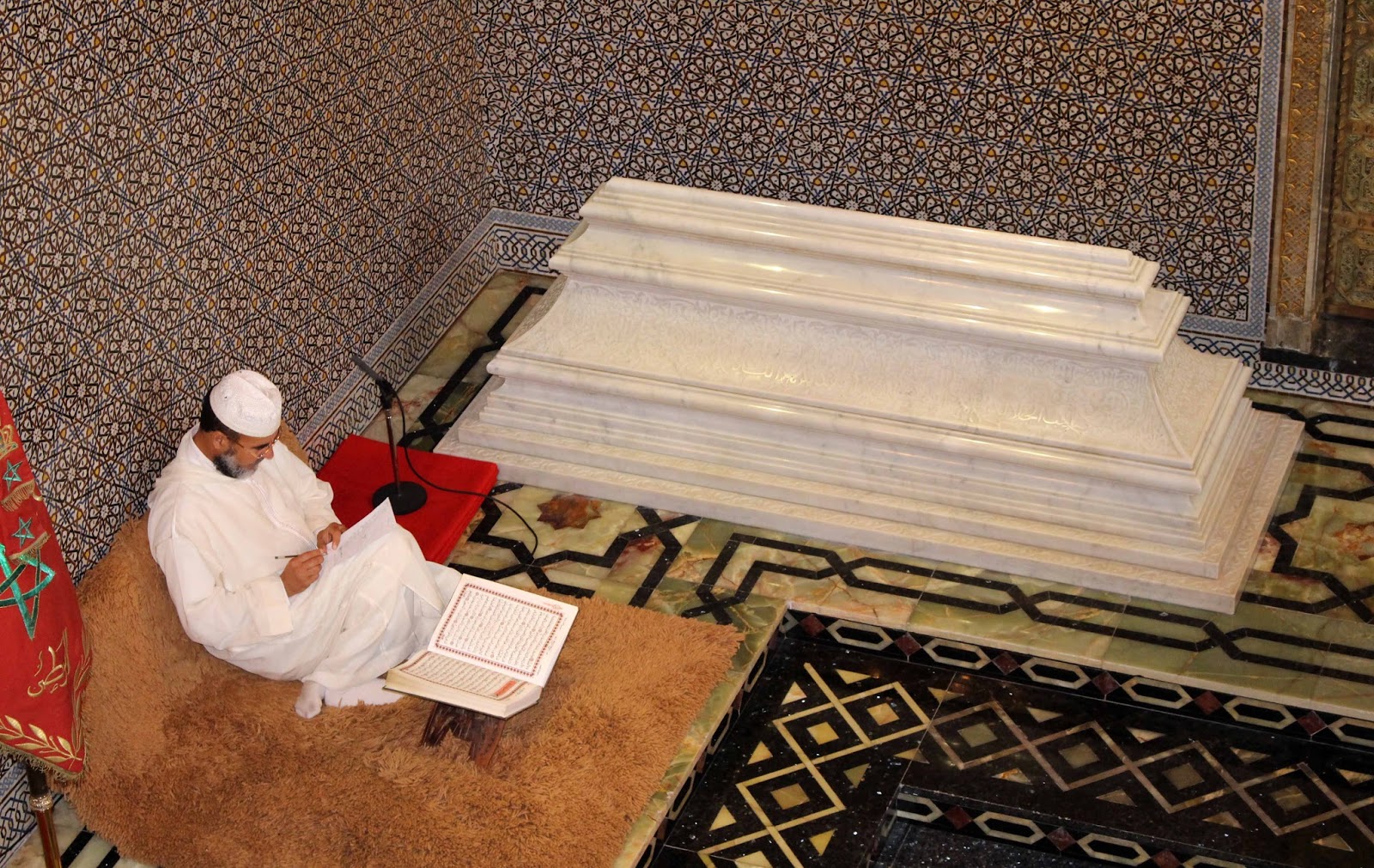On this first day of our Intrepid Travel
‘Best of Morocco’ tour, we had to be in the hotel foyer, checked out and ready
to go at 10.20am for the minivan transfer to the train station for the 1-hour
train journey to Rabat Australia
In Rabat Rabat is the capital of Morocco
 |
| One of the huge entrances into the Casbah at Rabat |
We followed our tour leader Issam through
the maze of streets, emerging near the Casbah, which is perched high on a cliff
overlooking gorgeous beaches thronged with holidaymakers on one side and the
river with its mass of fishing boats on the other. Inside the Casbah is now a
residential area, a picturesque labyrinth of white-washed buildings with blue walls,
doors, window frames and shutters – I later found out that the indigo blue
colour is used to discourage mosquitoes. It was so photogenic.

This was the end of our orientation tour
so, supplied with maps and informed about local points of interest, we were
told to be back at the restaurant at 4.45pm and were then left to explore on
our own. Rhonda and I decided on a plan and, not having much time, headed off
at a cracking pace in the hot afternoon sun to a nearby unfinished mosque, with
the huge Hassan Tower
 |
| The Mausoleum is one of the few places in Morocco where you're allowed to photograph the guards |
 |
| A reader of the Koran sits with the tombs |
We then caught a cab across town to
Chellah, part Roman ruins, part cemetery, part ancient walled city, all much
damaged by an earthquake in the 18th century. For once I was less fascinated
with the ruins and much more interested in watching the storks that were
nesting on every high point
By then it was time to return to the
meeting place, luckily not too difficult to find. Issam had threatened to leave
us behind if we didn’t make it back to the train station on time! Our next train, to Meknes
The scenery began to change about 30
minutes before our arrival in Meknes
In Meknes, we ate in a local restaurant –
one of Intrepid’s much touted ‘real life experiences’, which are actually an
excellent way to see and experience first hand how the local people live – and the
food was good. We were back at the hotel around 9.30pm, which just left time to
download and back up the days’ photos and write my journal before heading off to the land of Nod





Another great post and as usual I love your bird photos!
ReplyDeleteThanks a lot, Shelley. I just loved watching those storks.
Delete